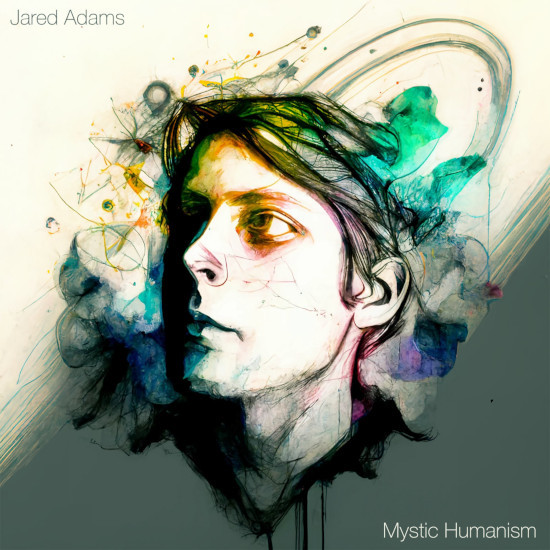Critipeg: Mystic Humanism
★★★★ out of five

Why is it so difficult to simply be in these trying times? Local singer-songwriter Jared Adams explores the many facets of this question in his newest record and sophomore full-length effort, Mystic Humanism.
Adams’ first album, Tragic Nostalgia, had the troubadour stand on the steps with his heart in his hand, so to speak. His second effort takes a turn, as he employs big-band bombast and indietronica stylings for an eclectic and varied second record.
This is very much in the mode of early 2000s alt-rock, drawing inspiration from Radiohead both musically and in thematic content. Adams employs traditional pop song structures but breaks beyond the limitations of the three- or four-minute ditty for a rousing and always engaging effort. Intricate arrangements and a horn section courtesy of local group Apollo Suns, among other guests, bolster these meditations on contemporary existence.
The album explores a litany of themes. The opening track, “Inundated,” is a lament of the rat race and the overwhelming nature of modern life. It’s ironically triumphant with Apollo Suns contributing horns, and listeners are introduced to Adams’ earnest croon that progressively endears itself. “South End Kids” employs handclaps and electric piano for something bordering on the edges of funk, taking the bones of a conscious Stevie Wonder song and making it his own.
The midway point of the album, “Natural Phenomenon,” gets sentimental with sullen strings and acoustics. Halfway through, Adams reaches a vocal high point, my personal favourite on the record, with the line “and all those bastards lie.” Who he is referring to is unclear to this reviewer, but his conviction is enough to inspire vitriol regardless of its target. It’s the closest return to the style of his first album but is more significantly the plainest demonstration of his talent as a singer-songwriter.
“Welcome to the Metaverse” is arguably the album’s best technical exposition. It’s the track that evokes the ideas explored in the 2007 album Fear of a Blank Planet, when Porcupine Tree articulated their fears that Xbox would be “a god” to Gen Zs. This take on technophobia is more playful, and thus much more digestible, with computerized bleeps and glitchy grooves. And particular props to Adams for a blithe homage to ’60s hidden tracks on “The Good Ones,” where he bemoans the deaths of paragons of virtue like JFK and MLK.
Lyrically, this is a very blunt project. It’s disarmingly confessional. Adams isn’t afraid to articulate the anxieties of the public consciousness without irony or obfuscating metaphors. It may be too heartfelt for more cynical listeners, but Adams seems disinterested in pleasing them anyway.
Instrumental bridges on most songs wisely give the verses room to breathe and showcase Adams’ gift for melody. It should be noted that this is a very consummate package, with high-quality mixing and production value by Adams and John Paul Peters throughout.
It’s hard to say whether the four years of gestation given to Mystic Humanism and resulting artistic maturity are the reason for such a professional record where many artists would slump. But if the state of the world inspires Adams’ work, then maybe it can decay just a little while longer.
Published in Volume 78, Number 19 of The Uniter (February 29, 2024)






